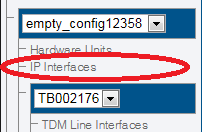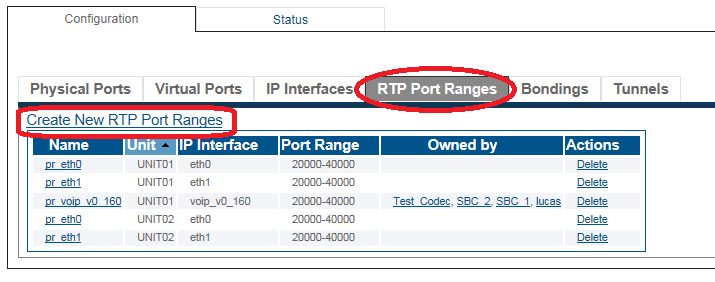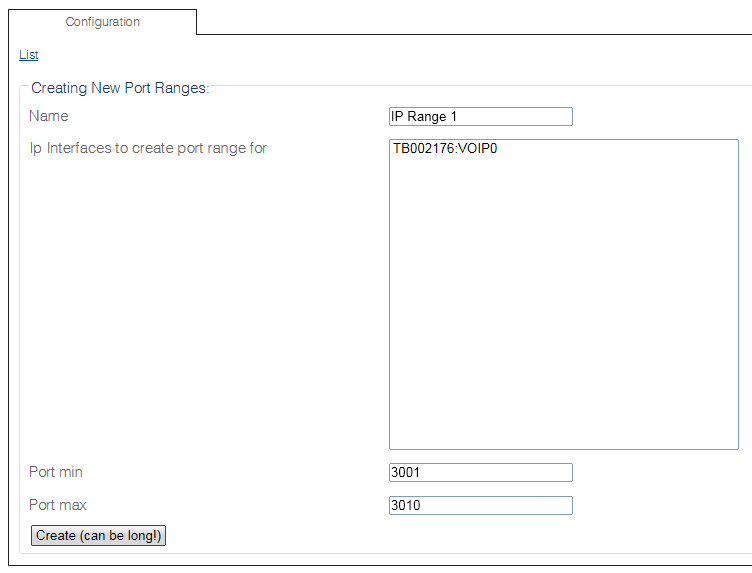Toolpack:Creating an IP Port Range D
From TBwiki
(Difference between revisions)
(→To configure an RTP port range) |
|||
| (4 intermediate revisions by one user not shown) | |||
| Line 1: | Line 1: | ||
| − | |||
{{DISPLAYTITLE:Configuring an IP Port Range}} | {{DISPLAYTITLE:Configuring an IP Port Range}} | ||
| + | {| class="wikitable" | ||
| + | |- | ||
| + | |rowspan="2"|This article applies to: | ||
| + | |'''Product''' | ||
| + | |'''Version''' | ||
| + | |- | ||
| + | |Tmedia | ||
| + | |2.9, 2.10, 3.0, 3.2 | ||
| + | |} | ||
A range of IP ports can be configured. | A range of IP ports can be configured. | ||
| Line 40: | Line 48: | ||
'''Parameters (text)''' | '''Parameters (text)''' | ||
<pre> | <pre> | ||
| − | /configurations/@[configuration_name]/hardware_units/@[hardware_name]/rtp_port_ranges/ | + | /configurations/@[configuration_name]/hardware_units/@[hardware_name]/rtp_port_ranges/@[port_name] |
ip_interface = "@[hardware_name]"."@[port_name]" | ip_interface = "@[hardware_name]"."@[port_name]" | ||
name = "Default" | name = "Default" | ||
Latest revision as of 15:26, 24 November 2020
| This article applies to: | Product | Version |
| Tmedia | 2.9, 2.10, 3.0, 3.2 |
A range of IP ports can be configured.
To configure an RTP port range
1. Select IP Interfaces from the navigation panel:
2. Click the RTP Port Ranges tab:
- Click Create New RTP Port Ranges
3. Configure the range of ports:
- Enter a name for the port range
- Select one or more IP interfaces
- Enter a minimum port number for the port range
- Enter a maximum port number for the port range
- Click Create
Path
/configurations/@[configuration_name]/hardware_units/@[hardware_name]/rtp_port_ranges/Default
Parameters (text)
/configurations/@[configuration_name]/hardware_units/@[hardware_name]/rtp_port_ranges/@[port_name] ip_interface = "@[hardware_name]"."@[port_name]" name = "Default" port_max = 60000 port_min = 10000 unique_name = "@[name]"
Parameters (json)
{
"ip_interface" : "@[hardware_name]"."@[port_name]",
"name" : "Default",
"port_max" : 60000,
"port_min" : 10000,
"unique_name" : "@[name]"
}


